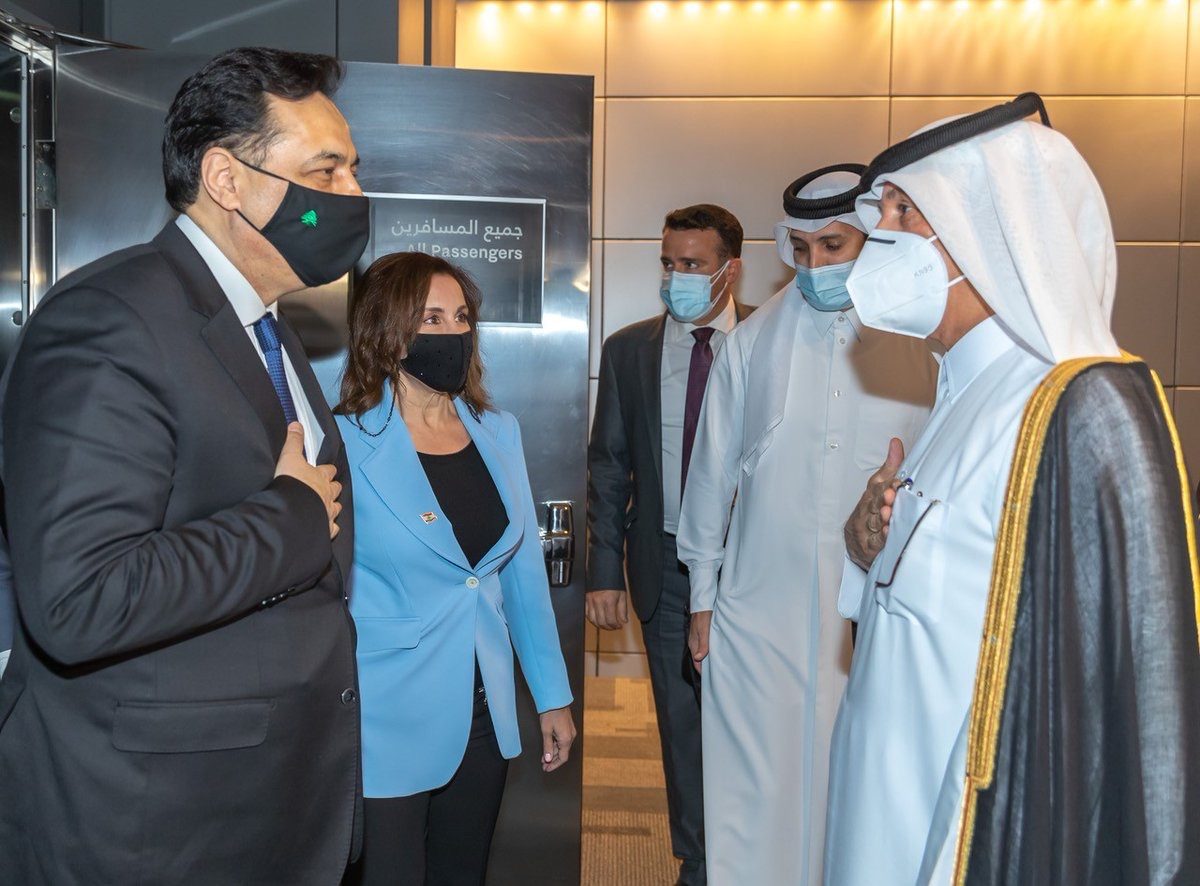In an interview with Doha News, Diab’s adviser discusses the purpose behind the two-day visit to Qatar.
Lebanon’s Caretaker Prime Minister Hassan Diab arrived in Doha on Sunday, in his first travel abroad since taking office.
The Lebanese official was received by Qatar’s Minister of State for Foreign Affairs Sultan Al-Muraikhi, and the Chargé d’Affairs of the Lebanese Embassy in Doha Ambassador Farah Berri.
Diab was accompanied by his adviser Khodr Taleb as well as the Chief of Protocol and Public Relations at the Presidency of the Council of Ministers Lahoud Lahoud.
Speaking to Doha News, Diab’s adviser said the two-day visit to Doha will include senior level meetings, including a sit-down with the Amir.
“The itinerary will include a series of meetings starting from Sunday night with different Qatari officials, most importantly with Qatar’s Emir Sheikh Tamim Bin Hamad Al Thani,” he told Doha News.
The caretaker PM’s trip to Doha is his first since taking office, after he postponed a visit to Baghdad last week and cancelled his visit to Cairo months ago.
Read also: Qatar’s deputy PM makes Lebanon ‘solidarity’ visit amid political deadlock
Taleb said the talks will focus on Qatar’s future plans to help ease the suffering of Lebanon’s people amid ongoing and multi-faceted crises.
He confirmed that Diab will head back to Lebanon on Tuesday after he meets with the Qatari officials, with the Lebanese delegation expected to pay visits to other countries in the near future.
Taleb praised Qatar’s continuous support to Lebanon especially during its current critical circumstances, noting the two countries have maintained contact throughout a difficult time.
Multifaceted crises
The outgoing government of Diab resigned in the wake of the August 4 chemical explosion that destroyed Beirut’s port and devastated downtown areas of the capital, killing more than 200 people and injuring thousands others.
Since then, the country has been left without a government which has in turn accelerated a severe economic crisis that has seen Beirut drown in debt, banking, financial and fiscal issues.
Lebanon’s free-falling currency continues to hit new lows against the US dollar. To date, it has lost around 90% of its value in the black market and dollar deposits are still locked up in banks. This has triggered an alarming spread of poverty amid a political deadlock.
Meanwhile, foreign countries have refused to bail out Lebanon before its political parties agree to form a new government committed to reform.
In recent days, a fuel crisis has led to power cuts in the capital Beirut and its surrounding suburbs, leaving residents without electricity for more than 15 hours per day.
The scarcity of petrol and diesel forced protesters out onto the streets to demand a response from authorities.
On Friday, Qatar sent an aid shipment to the Lebanese Customs as part of its ongoing efforts to provide humanitarian assistance to respond to last year’s horrific port explosion.
Follow Doha News on Twitter, Instagram, Facebook and Youtube







